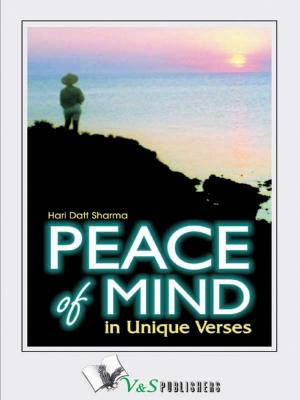Know Thyself - Attain Hapiness & Live A Good Life
Nonfiction, Health & Well Being, Self Help, Mental Health, Happiness, Health| Author: | Dr. A.P. Sharma | ISBN: | 9789350572658 |
| Publisher: | V&S Publishers | Publication: | April 1, 2012 |
| Imprint: | V&S Publishers | Language: | English |
| Author: | Dr. A.P. Sharma |
| ISBN: | 9789350572658 |
| Publisher: | V&S Publishers |
| Publication: | April 1, 2012 |
| Imprint: | V&S Publishers |
| Language: | English |
Presented in the most lucid style, the purpose of the book is not merely to know the characteristics of the self. It is also to find out about the truth of existence and beyond death,as well as to learn the process to knowledge. Only then the individual would discover the reasons for his selfishness, hatred, anger, fear that he cradles everyday in his life. The issue to have the knowledge of the `self` is very obscure. Yet the ideas presented in the book are not only inspirational but also introspective and embody the qualitative rational techniques to reach higher recesses of consciousness and soul-realization. The book is captivating as examples from real-life situations have been quoted to explain what is the nature of the Self and how it can transcend to tranquillity, peace and permanent bliss. Some Glimpses: *Do not do unto others what you do not want others to do unto you *The Western point of view about Self--Greek Ideas, European Contention and Five Theories of Mind *The Eastern Approach--Vedantic conception, Gita`s mantras, Jiva as a conscious substance *Western dilemma and the Eastern approach--concept of unity and the quest for unity
Presented in the most lucid style, the purpose of the book is not merely to know the characteristics of the self. It is also to find out about the truth of existence and beyond death,as well as to learn the process to knowledge. Only then the individual would discover the reasons for his selfishness, hatred, anger, fear that he cradles everyday in his life. The issue to have the knowledge of the `self` is very obscure. Yet the ideas presented in the book are not only inspirational but also introspective and embody the qualitative rational techniques to reach higher recesses of consciousness and soul-realization. The book is captivating as examples from real-life situations have been quoted to explain what is the nature of the Self and how it can transcend to tranquillity, peace and permanent bliss. Some Glimpses: *Do not do unto others what you do not want others to do unto you *The Western point of view about Self--Greek Ideas, European Contention and Five Theories of Mind *The Eastern Approach--Vedantic conception, Gita`s mantras, Jiva as a conscious substance *Western dilemma and the Eastern approach--concept of unity and the quest for unity















